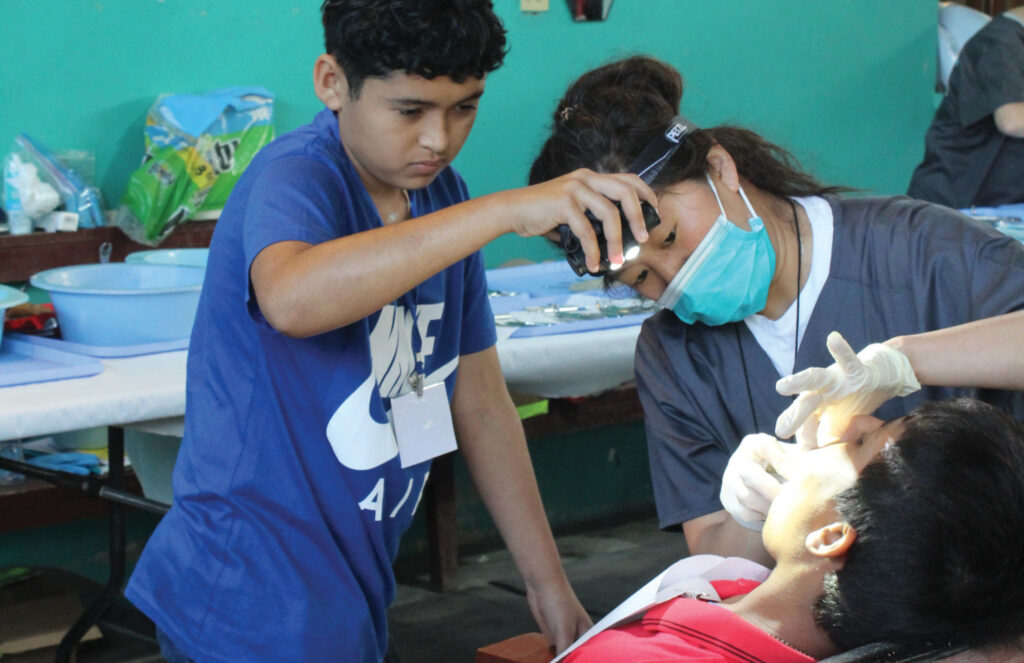For five days each year, one of the most ambitious and expansive outreach ministries of the Diocese of Mississippi takes place over 1,000 miles away from home. Flying across the Gulf of Mexico and the Yucatán Peninsula and landing in San Pedro Sula, Honduras, a team of doctors, nurses, physical therapists, pharmacists, dentists, optometrists, and even veterinarians makes its way to the tiny village of San Joaquin.
This is the Honduras Medical Mission.
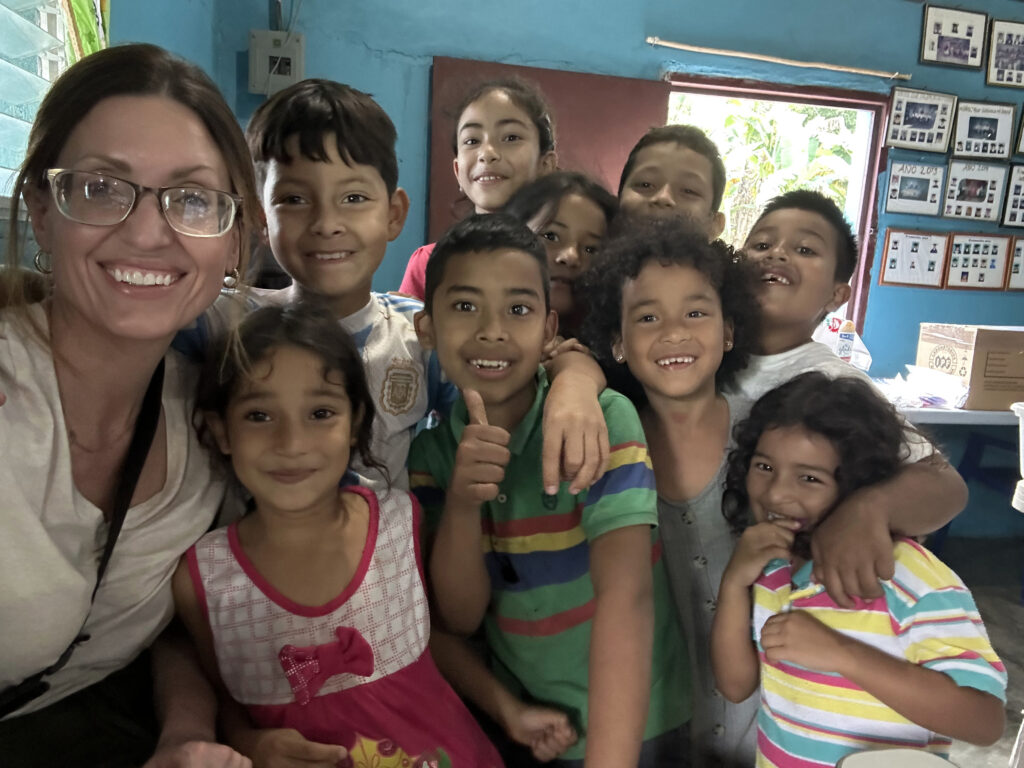
During their short stay, these medical professionals, along with a team of support staff, will treat more than 3,000 people and nearly 1,400 animals from all over the region for a wide range of issues. They will give out upwards of 5,000 individual prescriptions in addition to providing families with packages of medicine for day-to-day ailments. They will provide prescription glasses to more than 500 people.
Given the scale of what this team does, it’s amazing how few Episcopalians in the diocese ever see their work firsthand and hard to imagine how they pull it off.
When Drs. Scott and Kathy Knight of St. Peter’s, Oxford, agreed to take on leadership of the Mission trip in 2023, they were just as clueless as anyone. Optometrist William Strickland, also a member of St. Peter’s and a Mission participant since 1997, did some persuading.
“We’d been asked to be involved for a long time, and we’d always put people off and put them off,” says Scott. “And finally we thought, ‘okay, she’s retired. I’m half time.’ Okay, fine. William talked us into it, but we didn’t know anything at all.”
Since its inception as a project of a Sunday School class at St. John’s, Pascagoula, in 1982, sponsorship of the Mission has shifted to a new church every two years. Typically, the leaders chosen from that parish go on the Mission as observers for one year before assuming responsibility for the following two. The Knights did their observation as new board members at the 2024 trip. They were blown away by what they saw.
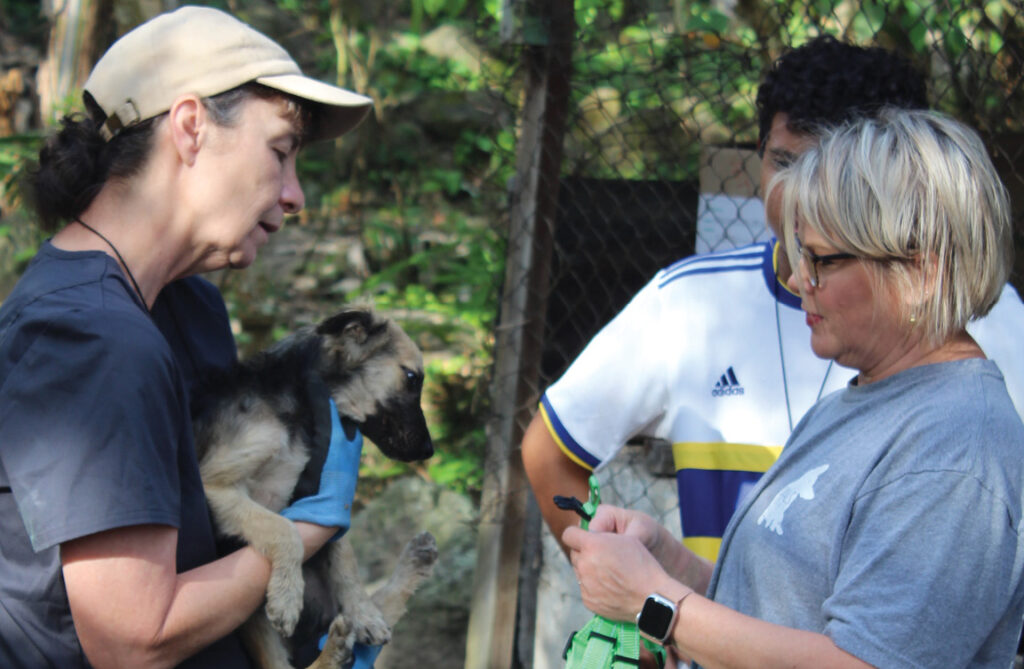
“It’s amazing what they deal with,” says Kathy. “Yeah, it really was surprising, that it’s not just, ‘well, let me give you some high blood pressure pills.’ I mean, they did procedures. They took a cyst out of a guy’s back.”
The Knights led their first trip in February, and are now well versed in all things Mission. Kathy is quick to point out the expansion that’s taken place over the years, especially the fact that the services provided to the people of San Joaquin now go beyond the one-week-a-year visit.
“It’s not just that week anymore,” she says. “We provide services all throughout the year. The preschool, Kinder Mississippi, that we fund, we fund that throughout the year. That’s pre-K kids, and now we’re getting more involved with the one through six government school.”
Medical offerings have expanded as well. The Mission began employing local nurse Keila Gonzalez in 2024. She operates the Mission’s clinic year-round from 9:00 a.m. until 1:00 p.m. on weekdays. Gonzalez has also become a vital asset during the annual visit, serving as a liaison between the Mississippians and their Honduran patients.
“She was kind of learning her first year—the first year that I went,” says Scott, “and she’s just made this huge transition and this time she was right there with everybody else, saying ‘oh, I know this patient, here’s what their issues are.’ I mean, she just facilitated everything, made everything run much smoother.”
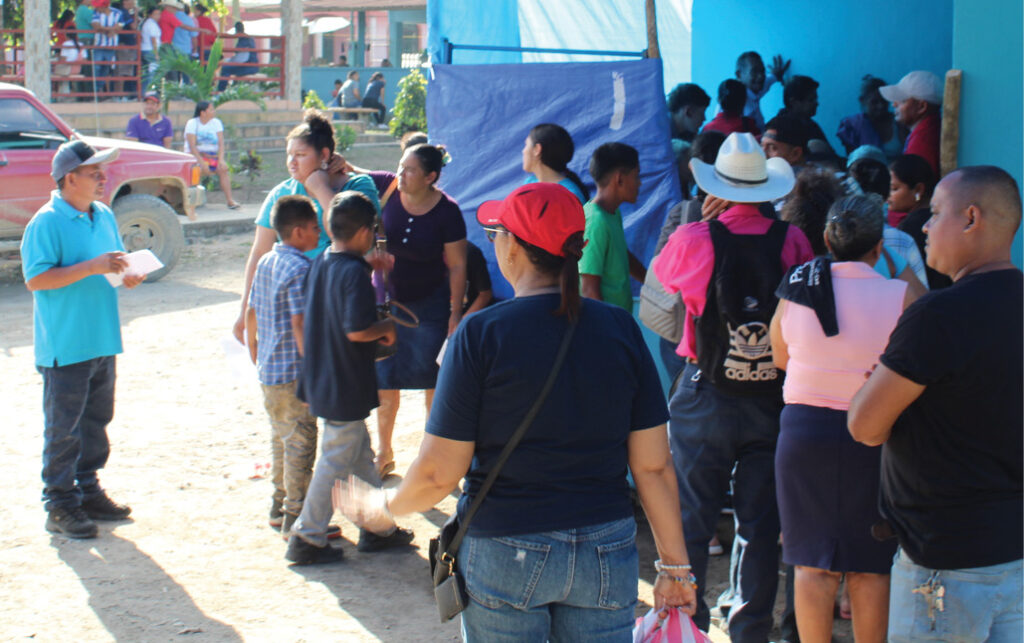
During the summer of 2024, there was a large outbreak of dengue fever in the village and surrounding areas, and Gonzalez and her assistant Mirian Gutierez were equipped with IVs to treat people for dehydration. They likely saved numerous lives, as the two-and-a-half-hour journey to San Pedro Sula is difficult even on the best of days due to poorly maintained roads.
While the primary focus of the Mission is to attend to patients’ chronic health problems, acute situations also arise during the visit. During the 2025 Mission, doctors treated a child who suffered a fall and a woman who was brought in in a nearly catatonic state. The veterinary clinic may have halted a major outbreak of a transmissible cancer among the local dog population by treating tumors that had recently shown up in two dogs.
A lot of infrastructure is needed to provide these services, but with the bulk of the clinic staffed for only the one week of the year, the Mission has found creative ways to make its facilities do even more for the community. Kinder Mississippi is also the home of the Mission’s pharmacy. The dentistry building doubles as a community center. There are aspirations to build an optometry clinic on the grounds of El Santo Episcopal Church, San Joaquin that will serve as a Sunday School the rest of the year and to replace the old veterinary clinic with a more modern one to allow visiting vets to spay and neuter.
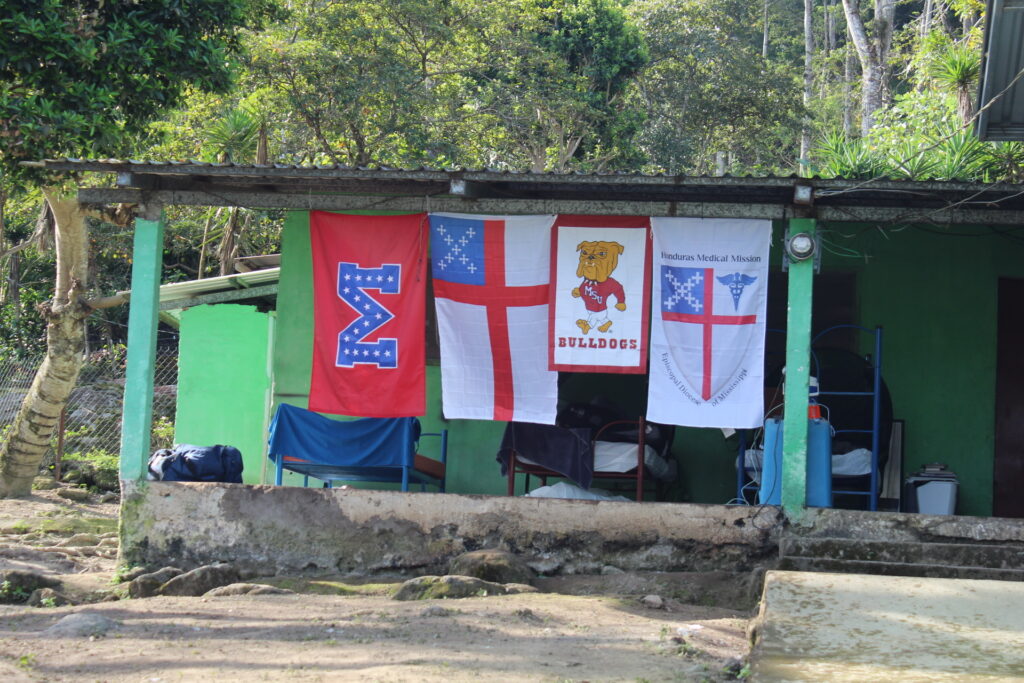 If all of this sounds expensive, it’s because it is. Even though all mission participants pay their own way, including airfare, food, and lodging, the costs of medicines, shipping, and maintenance are considerable. With the clinic now open all year, the expenses aren’t limited to one annual project. All of it is funded by direct donations.
If all of this sounds expensive, it’s because it is. Even though all mission participants pay their own way, including airfare, food, and lodging, the costs of medicines, shipping, and maintenance are considerable. With the clinic now open all year, the expenses aren’t limited to one annual project. All of it is funded by direct donations.
“It’s really the people of the Diocese of Mississippi that do this,” says Kathy. “It’s their generosity.”
Chairman of the diocesan Honduras Medical Mission board George Jackson echoes that sentiment and encourages Mississippi Episcopalians to get involved.
“Our love for these people is deep and long lived.,” he says. “We are experiencing unusual cost increases related to the drugs and supplies we need to help these folks, we certainly need more donations to offset these higher costs.”
As far away as Honduras may seem both geographically and culturally, people who go find similarities all around.
“The thing that surprised me the most is how at home I felt when I got to the village,” says Kathy. “I grew up in a little town, in Myrtle, on a dirt road. Nobody was wealthy. You got water out of the well when it was working, otherwise the spring. After supper, people would just sit around on their front porch or in the street and talk. That just really hit me. That nostalgia and how at home I felt. I think a lot of folks from Mississippi would feel very, very at home in rural Honduras.”
As the Mission looks forward to its 44th year in 2026, it continues to narrow the gulf between those two communities one act of care (or, in fact, several thousand acts of care) at a time.
The continued service of the Honduras Medical Mission is dependent on donations, both of money and time. If you can make a donation, please do so by visiting msepiscopalian.com/honduras. If interested in participating in the Mission either as a medical professional or support staff, visit dioms.org/ministries/honduras.html.
